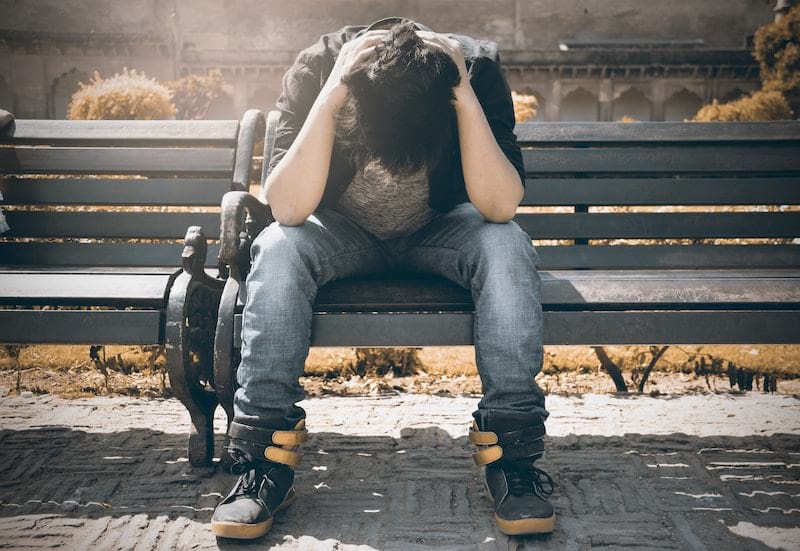Home > Behavioral Health >
Sex Addiction in Teens
Sex addiction in teens presents as engaging in a pattern of self-destructive and/ or high-risk sexual behaviors.
 It is, furthermore, characterized by compulsive engagement in sexual activity, regardless of potential negative consequences. Teenagers are naturally sexually curious. If your teenager is sexually active, it does not mean that he or she necessarily struggles with a sexual addiction. Sex addiction, however, does frequently mask other mental health disorders (i.e. anxiety and depression). For many teens struggling with sex addiction, sex is used as an escape from mental, physical, and/ or emotional pain. It can result in a teen experiencing increasing feelings of shame, guilt, and/ or lowered self-esteem.
It is, furthermore, characterized by compulsive engagement in sexual activity, regardless of potential negative consequences. Teenagers are naturally sexually curious. If your teenager is sexually active, it does not mean that he or she necessarily struggles with a sexual addiction. Sex addiction, however, does frequently mask other mental health disorders (i.e. anxiety and depression). For many teens struggling with sex addiction, sex is used as an escape from mental, physical, and/ or emotional pain. It can result in a teen experiencing increasing feelings of shame, guilt, and/ or lowered self-esteem.
Causes of Sex Addiction
Addiction, of any kind, encompasses and affects all aspects of a person’s life. There is no single specific cause that results in the development of sex addiction, but there are a number of factors that can contribute to its possible development. Some of the potential causes can include the following:
- Genetics: family history of addiction can increase a teens chance for developing an addiction in his or her lifetime
- Environmental: early exposure to sexual content and/ or exposure to sexual abuse can contribute to developing a teen sex addiction
- Mental Health: teenagers with mental health diagnoses (i.e. personality disorders, anxiety, depression, bipolar disorder…etc.) often result in poor impulse control which can lead to sexually promiscuous behaviors, subsequently leading to sex addiction
Other causes can include social pressures and elevated hormone levels. Every teenager is different, and even if he or she is predisposed to some of the above factors, it does not unequivocally imply that a sex addiction will be developed.
Signs & Symptoms
There are both emotional and physical signs and symptoms associated with sex addiction, so it is important to be on the lookout for both. Some examples include any combination of the following:
- Habitual masturbation
- Engaging in sex with multiple partners
- Sex dominates the teen’s life to the point of exclusion of other activities
- Teen engages in risky sexual behaviors (i.e. public sex)
- Anger or irritability when discussing healthy sexual behaviors
- Irregular sleep habits
- Weight fluctuation
- Anxiety
It is highly common for a teen to want to avoid talking about sex with his or her parents. Moreover, it can be challenging for a parent to broach the topic of sex with his or her child. It is, however, imperative to make sure you child learns about sex and safe sex practices, in addition to ensuring your teen has the appropriate resources to process both the physical and the emotional aspects of engaging in sex.
When left unaddressed and/ or untreated, a teenage sex addiction can lead to detrimental consequences. The complete disregard for potential short and long term effects resulting from a teenager’s sex addiction can wreck havoc on his or her life and the lives of his or her loved ones. Relationships can become strained and daily responsibilities ignored. Addiction, of any kind, including sex, must be taken seriously and its recovery warrants sincere attention and steadfast commitment. Providing your teen with the support needed to battle sex addiction can make a world of difference and lead to a sustained recovery.
For Information and Support
Seeking help is never easy, but you are not alone! If you or someone you know is in need of mental health treatment, we strongly encourage you to reach out for help as quickly as possible. It is not uncommon for many mental health difficulties to impact a person for the long term. The earlier you seek support, the sooner you and your loved ones can return to happy, healthy and fulfilling lives.
References
- George M, Maheshwari S, Chandran S, Rao SS, Shivanand MJ, Sathyanarayana rao TS. Psychosocial intervention for sexual addiction. Indian J Psychiatry. 2018;60(Suppl 4):S510-S513.
- Levine SB. What is sexual addiction?. J Sex Marital Ther. 2010;36(3):261-75.
- Muller RT. Sex addiction: a response to trauma?. Psychology Today. 2014.
- Sex addiction treatment. American Addiction Centers. 2019.


